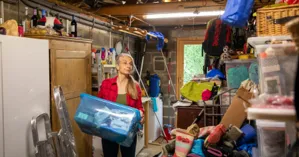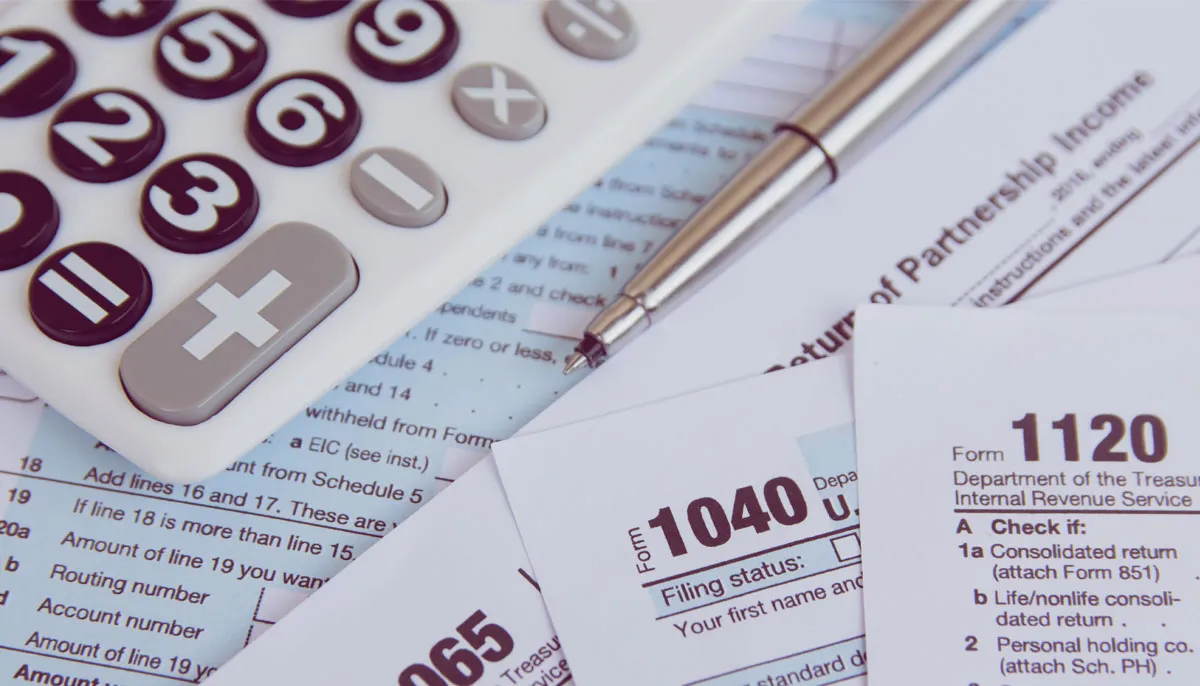
In a world that is obsessed with consumption and trying to one-up everyone, downsizing might seem counterproductive. After all, we’ve been told that bigger is better. But what if we told you that less is more? Downsizing can save you significant money. A key financial implication of downsizing is the potential profit from a home sale, which can be substantial when moving to a smaller property. But what are the financial benefits of downsizing?
Understanding the Concept of Downsizing

Downsizing is the process of transitioning to a smaller living space, often to reduce housing expenses, simplify one’s lifestyle, and increase financial freedom. This concept has gained popularity in recent years, especially among retirees and individuals seeking to minimize their environmental footprint. By moving to a smaller home, you can significantly cut down on housing expenses, making it easier to manage your finances and enjoy a more streamlined living space.
What is Downsizing?
Downsizing involves selling or letting go of a larger home and moving to a smaller one, which can be a condominium, townhouse, or even a senior living community. This decision is often driven by the desire to reduce housing expenses, such as mortgage payments, property taxes, and maintenance costs. Downsizing can also provide an opportunity to declutter and simplify one’s lifestyle, leading to a more organized and peaceful living environment. Imagine trading in your sprawling house for a cozy, manageable space that requires less upkeep and offers more freedom.
Benefits of Downsizing for Financial Freedom
Downsizing can have numerous financial benefits, including:
-
Lower mortgage payments: By moving to a smaller home, individuals can reduce their mortgage payments and allocate more funds towards retirement savings, travel, or other financial goals.
-
Smaller utility bills: A smaller living space typically requires less energy to heat, cool, and power, resulting in lower utility bills and reduced energy consumption.
-
Reduced maintenance costs: Smaller homes require less maintenance, which can lead to significant cost savings over time.
-
Increased cash flow: By downsizing, individuals can free up more money in their budget to invest, save, or spend on activities they enjoy.
Clutter Costs Money

You probably have possessions that you’ve forgotten about. Or you may have objects right in front of you that you no longer notice or need. These can be:
-
electronic devices
-
clothes
-
furniture
-
etc.
Your home has become a storage facility. I place to keep your stuff. And you’ll never use most of that junk.
Or worse, you might have a storage locker that you no longer remember what is in it.
Many people move to bigger homes to accommodate all their accumulated stuff. Evaluating how much stuff you have and minimizing possessions can help reduce clutter and stress.
Have you ever watched HGTV? A couple is looking for a house. One of them usually says that they need storage. We wonder if they’ve ever considered what they’re storing and why.
What are some of the Costs of Clutter
First, you have the storage costs. If you're buying a bigger home to accommodate all your belongings, you've just spent thousands to store that tea set from your wedding that you've never used. We know people who have moved boxes from house to house and don't even know what's in them.
If you're keeping some of your stuff in a storage unit, you'll probably spend $100 to $300 per month, depending on the unit's size. Do you need the stuff or the money? We'd go with the money.
With a lot of belongings, you’re spending time and money on upkeep. A large house or expensive car has a lot of maintenance.
Accumulating stuff costs as well. Impulse purchases that add to the pile in your closet or attic can add up and put you in debt.
Why Downsizing is Financially Sound: Financial Benefits

When you spend less, you save money. By reducing expenses, you can save more money for:
-
savings goals
-
retirement
-
vacations
You’ll also be able to reduce your debt. You can break the cycle of debt by downsizing. By not adding to the clutter, you can pay more toward that high credit card balance. In fact, you wouldn’t have been in debt to begin with if you had started with a minimalist attitude. But it’s not too late. Stop the madness.
When you do spend, spend smarter. Don’t worry about having five cheap jackets. Instead, opt for one quality, versatile jacket. Make your purchases meaningful, not impulse.
Financial security can be yours when you downsize. By not spending on extra items, you can set that money aside for an emergency savings account or IRA. Additionally, using the proceeds from selling your current home to pay cash for a new, mortgage-free home can provide significant financial freedom and savings.
Sell your excess belongings and stash the proceeds. You’ll be prepared for emergencies and unexpected challenges. A simple life prepares you for a lost job or medical bill. It's also important to consider the tax burden when downsizing, as analyzing property taxes, income taxes, and potential exemptions from capital gains tax can significantly impact your retirement budget.
Finally, by downsizing, you can save money that can be invested strategically. Your money will grow to benefit you, not gather dust in the closet.
Lower Mortgage Payments
One of the primary financial benefits of downsizing is the potential to reduce mortgage payments. By moving to a smaller home, individuals can lower their mortgage payments and allocate more funds towards other financial goals. This can be especially beneficial for retirees who are living on a fixed income and seeking to minimize their expenses. Imagine having more money to spend on hobbies, travel, or simply enjoying your retirement without the burden of a hefty mortgage.
Smaller Utility Bills
A smaller living space typically requires less energy to heat, cool, and power, resulting in lower utility bills and reduced energy consumption. This can lead to significant cost savings over time, especially for individuals who are looking to reduce their environmental footprint. Not only will you save money, but you’ll also be contributing to a more sustainable future by downsizing your home and reducing your energy usage.
You Don’t Have to Feel Deprived

We’re not saying throw out everything you own. Instead, get rid of items you don’t use or that no longer bring you joy. Sell them online or donate them.
Downsizing can provide more opportunities to spend quality time with loved ones, allowing you to strengthen relationships and enjoy meaningful moments together.
Instead of things, consider investing in experiences. Storing memories from a trip takes up a lot less space than that Peloton you never use.
Don’t fall for marketing ploys. A shiny new object isn’t going to make you happy, but it could break the bank. Think about purchases and ask yourself not only if you need it, but how often you’ll need it. Will it get used?
Prioritize quality over quantity. Make it a point to embrace minimalism.
How to Downsize

In some situations, you only have to tweak your behavior. But sometimes, it takes a radical change or brutally cutting away at the exorbitant ways in your life. Either way, downsizing takes a shift in mindset.
When downsizing, it's crucial to consider the tax implications of selling your home. Evaluating tax considerations, such as potential exclusions from taxable income and property tax rates in different retirement destinations, can significantly impact your financial planning.
Additionally, understanding how selling your home affects your taxable income is essential. Couples and singles can exclude significant gains from their taxable income under IRS rules, making it important to be aware of these tax implications when planning a move, especially for retirement.
Audit Your Spending for Retirement Savings
Start with auditing your life. Where does your money go? This is the time to write down everything you spend money on and decide what can go. Remember, downsizing doesn’t only mean weaning yourself from stuff; it means eliminating excess spending.
When auditing your spending, it's crucial to consider income taxes. Some states have no income tax, which can be advantageous for those planning to downsize. Be sure to factor in income taxes alongside property and sales taxes when budgeting for retirement.
All your spending counts and includes the coffee or lunch you are buying daily. Slash whatever isn’t necessary. The same goes for subscriptions and take-out. Go through and start eliminating.
Don’t Impulse Buy
Go with the one-week rule when shopping online. Go ahead and put it in your cart and then walk away. Don't look at it again for a week. If you still want it and can buy it with a debit card, not credit card, then by all means, buy it. You will probably find it no longer looks like a shiny object.
Before you even consider buying, consider whether you already have something like it and whether you've used it in the last 12 months. You probably won't use the new item either.
Be Brutal with Decluttering
Clutter begets clutter. When you have clutter, you get in a collection mindset, and you're more likely to buy more. Take the steps to eliminate the clutter.
If you need help deciding what to get rid of, call a friend or family member. They'll be brutal for you.
For every item you choose to eliminate, decide immediately what you’re going to do with it. Make a sell pile and a give-a-way pile. Take the donation pile to the charity immediately. And then either set up a garage sale or start selling online. But don’t wait.
Have your friend help you.
Downsizing Your House: Maintenance Costs

There are many reasons to downsize your house. They include:
-
smaller mortgage
-
affordable home insurance
-
less maintenance
-
fewer utility bills
-
decluttering
Moving to a smaller house can provide financial relief and suit the needs of those wishing to stay in a more manageable living environment as they grow older. Getting out from under that large mortgage can be a lifesaver for many people. But with this economy it’s important to run the numbers. Even small houses have increased in price. And with high interest rates, it may not be as attractive. This is especially true if you have a low interest rate on your home.
Managing a smaller space can lead to significant savings on expenses such as rent and utilities, and help maintain a decluttered lifestyle. But consider how much money you’ll save in the other areas we mentioned and see if you’ll come out ahead if you make the move.
Conclusion
Downsizing can help you financially. You can pay down debt or increase your savings by eliminating excess expenses and selling unused items.






